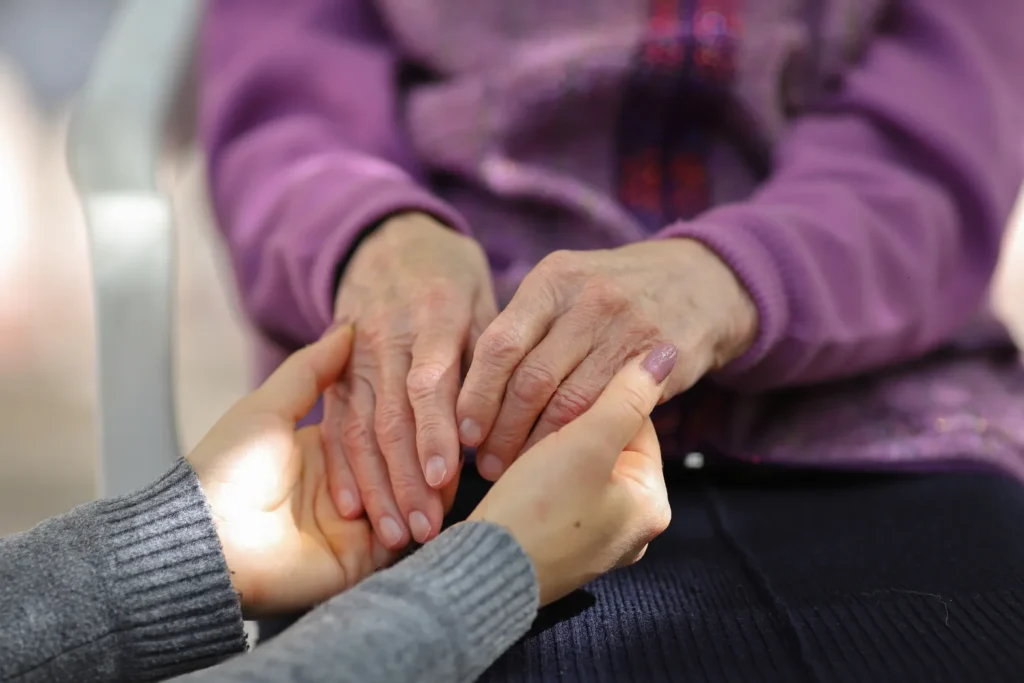Signs It Might Be Time for Assisted Living—And How to Start the Conversation
Making the decision to move a loved one into assisted living is never easy. In fact, it’s often one of the most emotionally complex choices a family can face. You want to honor their independence, but you also want to ensure they’re safe, supported, and thriving in daily life.
At Bayside Terrace Senior Living, we’ve guided many families through this journey—and one thing we’ve learned is this: recognizing the signs early and opening up an honest, caring conversation can make the transition smoother for everyone involved.
Recognizing the Signs
Sometimes, the changes are gradual. Other times, they appear almost overnight. Whether you’re noticing subtle shifts or clear red flags, it’s important to trust your instincts and observe patterns. Here are some of the most common signs that may indicate it’s time to consider assisted living:
- Increased Forgetfulness or Missed Medications
If your loved one is forgetting to take important medications, missing appointments, or showing signs of confusion, it may be time for added support. - Difficulty Managing Daily Tasks
Are they struggling with cooking, cleaning, bathing, or dressing? Assisted living communities provide help with these tasks while still allowing for personal independence. - Changes in Hygiene or Appearance
A noticeable decline in grooming or wearing the same clothes for days could signal that they need more assistance than they’re letting on. - Isolation or Withdrawal
Loneliness is a serious health risk. If your loved one is avoiding social events or seems withdrawn, assisted living offers built-in community and companionship. - Household Safety Concerns
Unpaid bills, spoiled food in the fridge, or fall hazards in the home can be signs that it’s no longer a safe environment to live alone. - Caregiver Stress or Burnout
If you’re feeling overwhelmed, emotionally drained, or concerned about your ability to keep up, it may be time to explore care options that offer professional support.

How to Start the Conversation
Even if the signs are clear, the conversation can still be difficult. Many older adults fear losing independence, control, or their sense of home. That’s why it’s important to approach the topic with empathy, patience, and understanding.
Here are a few tips to help guide the conversation:
- Choose the Right Time and Setting
Avoid starting the discussion during a moment of stress or urgency. Instead, pick a calm, comfortable setting where everyone can speak openly. - Use “I” Statements, Not “You” Statements
Frame your concerns with compassion. For example:
“I’ve noticed you seem more tired lately, and I worry about you managing everything on your own.” - Share Observations, Not Accusations
Point out specific examples of behavior or concerns rather than making generalizations. This helps the conversation feel less confrontational. - Involve Them in the Process
Ask them what they value most in daily life, and how a supportive community could help them maintain it. Make it clear that this is about enhancing their life—not taking it over. - Be Prepared for Multiple Conversations
It’s okay if the decision isn’t made right away. Sometimes, planting the seed is the first step toward readiness.
Why Families Choose Bayside Terrace
At Bayside Terrace Senior Living, we’re proud to offer a supportive, welcoming environment where residents receive just the right amount of help, without sacrificing independence or dignity.
Our assisted living services include:
- Personalized care plans
- Assistance with daily living activities
- 24/7 compassionate staff
- Home-style dining and wellness programs
- A vibrant, connected community
Whether you’re ready to take the next step or just exploring your options, our team is here to answer your questions, listen to your concerns, and support your family every step of the way.

Let’s Talk About What Comes Next
If you’ve been noticing the signs—or if you’ve been carrying the emotional weight of wondering what’s best—now might be the right time to start the conversation.
Reach out to Bayside Terrace Senior Living today. We’re here to help you navigate this journey with care, clarity, and compassion.
Related Posts
Early Signs of Alzheimer’s: When to Consider Memory Care
When a loved one starts showing signs of memory loss, it can bring a mix of emotions—worry, confusion, and concern about what comes next. While some forgetfulness is natural with age, consistent changes in behavior or cognition may be an early sign of Alzheimer’s...
Celebrating Nurses Month: Honoring Our Heroes in Senior Living Communities
May is Nurses Month, a time to celebrate and honor the invaluable contributions of nurses, especially within senior living communities. These dedicated professionals are the cornerstone of quality care, providing not only medical support but also emotional and social...
The Joys of Vacationing as a Senior: Embracing Adventure and Relaxation
Retirement marks a new chapter in life, offering seniors the opportunity to explore the world and indulge in well-deserved relaxation. Vacationing as a senior presents a unique set of advantages, allowing older adults to embrace adventure, connect with loved ones, and...

